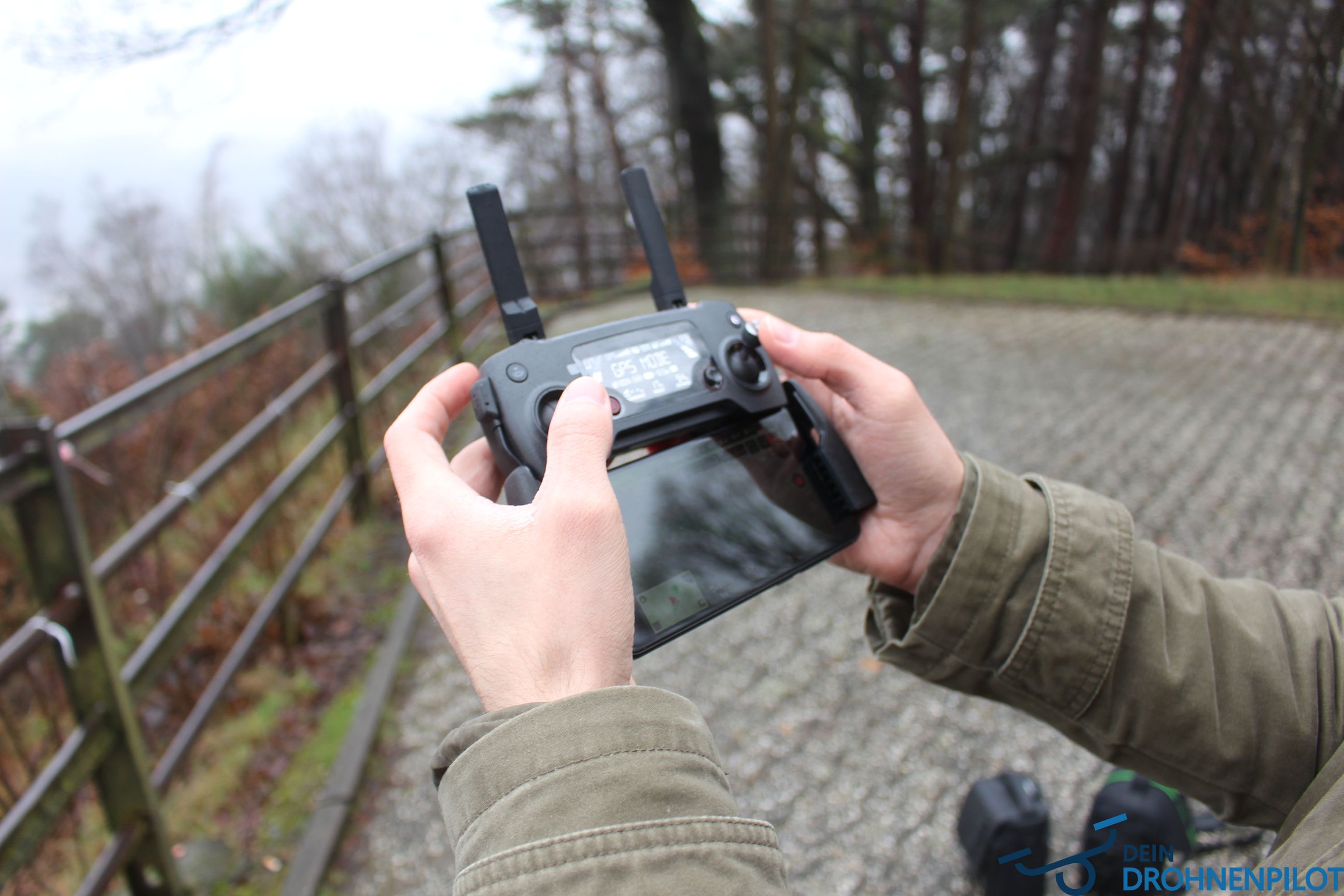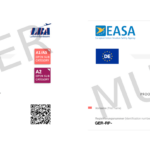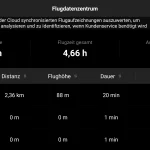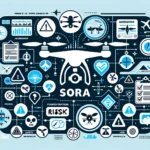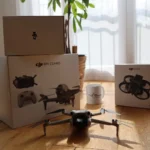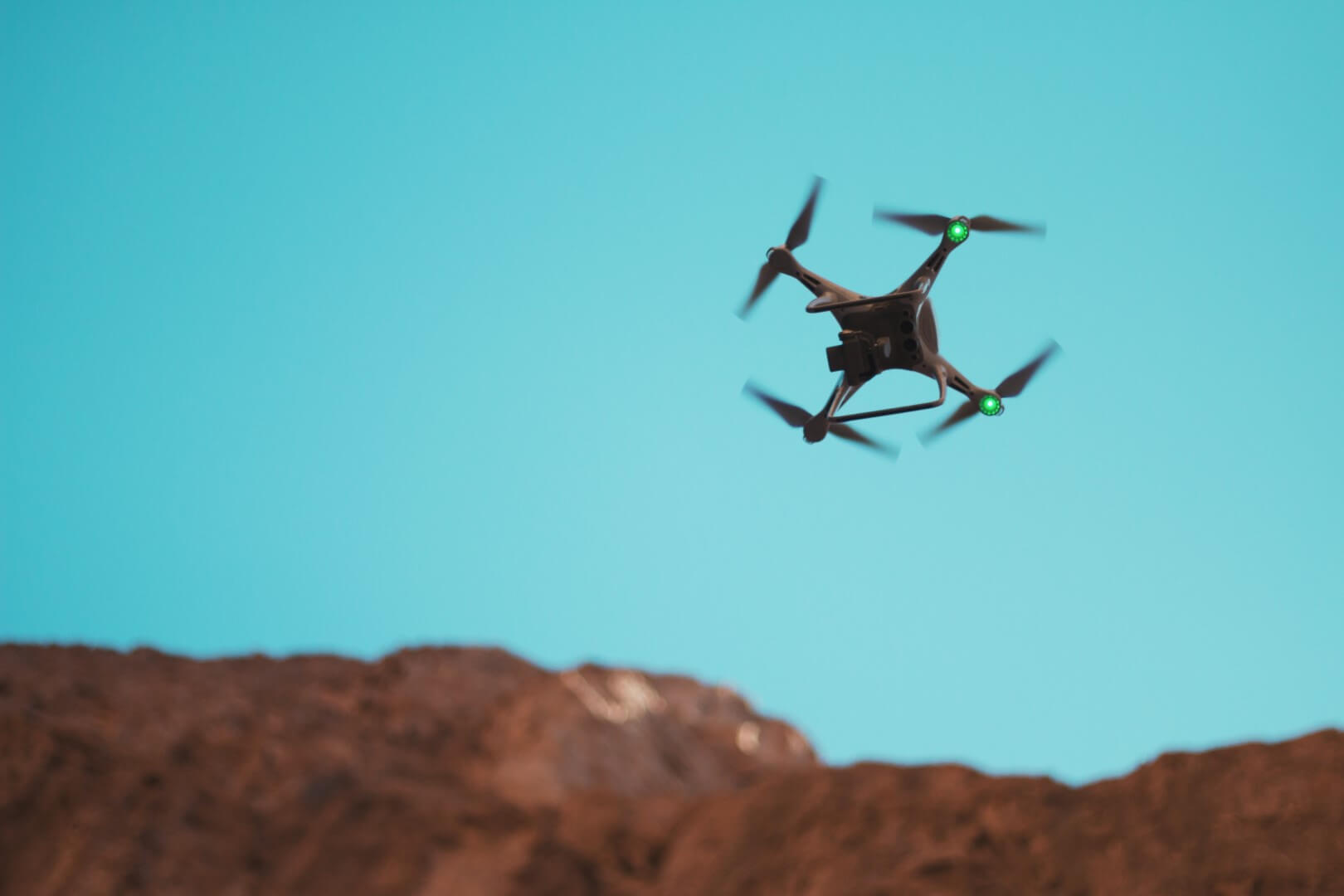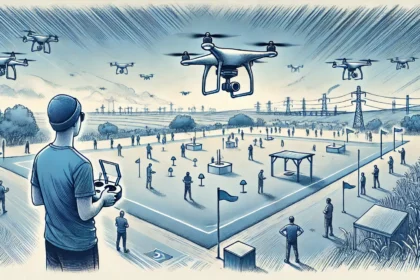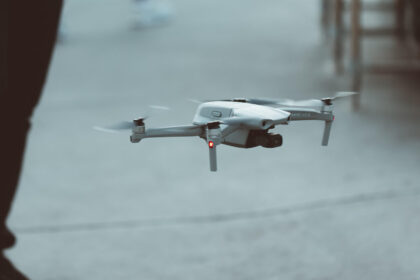Your first drone flight is an exciting experience. To avoid any unpleasant surprises, you should consider the following tips beforehand. Where am I allowed to fly? Do I need permits? What should I bear in mind when flying? These and other questions are answered in the following guide. This way, your first drone flight is sure to be a complete success!
With our tips, you’ll be ready for your first drone flight in just a few steps. Pay attention to the following things:
- Buy the right drone
- Check insurance
- Observe the laws
- Get your drone ready for take-off
- Extra: Weather
- Extra: Image rights
In the following paragraphs, we will go into detail on the respective points and provide you with the best tips for your first drone flight.
Before your first drone flight: The right drone for beginners
If you’re still deciding which drone to start with, our introductory drone guide can help you find the right drone for you. In another of our articles, you can also take a look at the different types of drones available before deciding for yourself which drone is best for you.
Drone insurance: Nothing works without it!
If you already own a drone, you need to consider the most important point: drone liability insurance. This is required by law and without it you are not even allowed to launch your drone – regardless of whether it is for private or commercial use! Do not underestimate this point. As a drone pilot, you are liable for any damage caused by the drone (which may even crash)! If you fly your drone without insurance cover, you could be fined up to €50,000 – without incident.
Standard personal liability insurance often does not cover damage caused by drones. To be on the safe side, check your current insurance policy and possibly take out a separate drone liability insurance policy or change your personal liability insurance to a provider that includes a drone clause.
So before your first drone flight, it is urgent and imperative that you look into appropriate insurance cover.
You can find more information on drone liability insurance as well as a selection of suitable insurances in our drone liability insurance strategy guide.
Drone laws – the most important tip: What you need to know before your first drone flight
The most important thing you need to be aware of as a drone pilot – especially before your first flight – is the current legal situation. Since 31.12.2020, the EU Drone Ordinance has also been in force in Germany, in which all important laws and rules are laid down. You can find all the necessary information in the linked article. We strongly recommend that you read the article, even though it may seem a bit overwhelming at first. However, we also address individual aspects of the ordinance in the following sections. This way, you already get a slimmed-down summary in this article.
Registration obligation for drone operators
After the insurance, you have to consider another point: the registration obligation for drone owners and the assignment of a so-called eID (electronic identification number). Under certain conditions, drone owners must register in a central EU-wide database and are then assigned a unique number, the eID. This unique number must also be placed on the drone accordingly.
Registration for the owner of the drone is mandatory if the drone ..
- has a maximum take-off mass of 250 grams, or
- is equipped with sensors for recording personal data (e.g. a camera), unless it is a toy according to Directive 2009/4848/EC.
As a result, virtually every drone pilot is obliged to register.
In this way, the owners of a drone should be able to be identified easily, even across countries, for example in the event of accidents or directly during the flight by means of RemoteID (remote identification).
We have already written a comprehensive article on the registration obligation – Registration and identification – eID – EU Drone Regulation. Here you can find out where to register and how.
Marking your drone
As mentioned in the previous paragraph, once you have registered as a drone operator, you also need to mark your drone. You can find details on this in our article Drone number plate and sticker.
Do I need a drone licence?
Under certain conditions, you need to obtain an EU drone licence. There are two types of licence:
- EU certificate of competence (“small EU drone licence”)
- EU Remote Pilot Certificate (“large EU drone licence”)
When which certificate is required, including further information, can be found in our article EU drone licence – all the information.
Flight altitude and range
You should also consider a few points regarding flight altitude and range before you start your first drone flight.
In general, there is a flight height limit of 120m. You may only fly within visual range. Most drones are limited in height by default and cannot be flown higher without modification. If this is not the case with your drone, pay even closer attention to your current flight altitude!
Where can I fly a drone for the first time?
You can’t just fly your drone anywhere. But where can you fly your drone at all? Despite uniform EU drone regulations, there are country-specific differences. Fortunately, there are suitable tools that you can use to check directly for an address or a point on the map whether you are allowed to fly your drone there. Information on the tools and the corresponding laws can be found in our article Where can I fly with my drone?.
Flying on your own property
It’s obvious if you want to fly on your own property for your first drone flight. But is that allowed?
Inprinciple: yes. Flying a drone on your own property is largely unproblematic and possible without permission.
However, pay attention to the minimum distance of 150m to residential areas if the drone you want to fly falls into the subcategory A3 of the OPEN category. Also pay attention to the distances to uninvolved persons when flying in the different subcategories A1-A3. For more information, see the article on the EU Drone Regulation.
It is best to use a tool and check whether the property to be flown over is in a zone where drones cannot be flown, even if it is your own property. For example, due to the proximity of certain facilities, federal trunk roads, bodies of water, etc.
Flying over other people’s property
A common question asked at the outset is: “Can I fly over my neighbour’s property?”. The answer to this is short: No. As long as the property owner does not explicitly agree to an overflight. You can find more information about this here: Flying over other people’s property with a drone – allowed or not?
Get your drone ready for take-off: Checking the technology before your first drone flight
If you are ready to take off with your drone, check the following points. You should check these before every flight.
- Remove all mounts and protections before operating the drone for the very first time. For DJI drones, this may include the camera cover and propeller transport protectors
- Fully charge the battery(ies) and pack spare batteries
- Make sure both the drone’s firmware and app are up to date.
- After switching on, check that all sensors are working properly and that the drone is not reporting any errors.
- Make sure the take-off and landing area is clean
Extra: Pay attention to the weather
Of course, the weather also plays an important role. Not only before your first flight, but before every flight, you should keep a close eye on the weather conditions and ideally check them in advance. We have compiled some information on this in a separate article. Flying a drone in bad weather – what to consider
Extra: Image rights
When it comes to image rights, there is basically no difference between drone photography and normal photography. This point is very complex and full of exceptions. We summarise some key points, but they can only cover some points of the topic of image rights. Especially if you want to publish or sell images, you should get detailed information from a competent lawyer.
- People who can be seen in drone photographs taken during a public event do not have to be asked for permission. The prerequisite for this is that the event itself and not individual persons form the main motif.
- Buildings taken from public streets and squares are subject to the freedom of panorama. This means that these pictures may be reproduced and passed on. However, it is important to note that this only applies if they are taken without aids and from the “normal view”. If you climb a ladder to look over a fence, this does not count. Thus, even pictures of drone flights that show more than one would see from the road itself are only permitted with the owner’s permission.
- If individuals are clearly recognisable in a photo and it is not a public event, §22 KunstUrhG applies.“Portraits may only be distributed or publicly displayed with the consent of the person portrayed”. However, this does not apply to photographs taken from the air, as individual persons are usually not clearly recognisable here.
The law firm WBS has summarised more detailed information in its article in the section“Problems arising from the use of civilian drones“. Another recommendation is the following book, which also covers multicopters in the updated edition.
- Rau, Wolfgang (Author)
Commercial drone flights
For commercial drone flights, there are a few more points you need to consider. Take a look at our guide Commercial drone flights – all the important information.
Conclusion
There are many things to consider before your first drone flight. Take the time to familiarise yourself with these points and adhere to them. This article and the guides linked here are intended to serve as an initial introduction to the most important points.
This will not only save you potential trouble with authorities or neighbours, but will also ensure that your first drone flight is a complete success.
Letzte Aktualisierung am 2025-04-16 / Affiliate Links / Bilder von der Amazon Product Advertising API


